Yates Account
Join now
Create a Yates account today!
Sign up to join the Yates Garden Club for monthly e-mails packed with seasonal inspiration, tips for success & exclusive promotions.
Plus if you’re a Garden Club member you can take part in the Yates Growing Community - a blog to share successes, get advice & win prizes in fun challenges along the way!

Forgot password
Enter the email address associated with your account, and we'll email you a new password.

What to do, this Month
Spring's here, and the garden is bursting into life! So many warm season garden plants can be started from seed now. The weather begins to warm up, but can be a bit of a rollercoaster - with a few cold snaps along the way. Keep a close eye on the weather forecast and avoid planting warmth-loving plants outside too soon.
- Continue preparing the soil for spring planting by adding compost, well-rotted manure, slow-release fertilisers and Yates Dynamic Lifter.
- With plants in the garden beginning to wake up, give them a light fast acting feed (like a liquid fertilizer) to support the new growth. Once soils warm up and dry out after the cold, wet winter, plants access to soil nutrients will improve.
- As temperatures rise, slugs and snails will emerge from hibernation with an appetite for young seedlings and fresh tender growth. Protect your plants with Yates Blitzem, beer traps, or gather them up and remove them from the garden.
- Refresh hanging baskets and decorative containers for a magnificent summer display. Potting soil can become depleted of nutrients, or contain overwintered pests or disease, so remove any loose old soil and clean the containers before adding new potting mix and fresh plants.
- For Father’s Day, any tools to help Dad transform your backyard into a summer haven would be a very sensible gift, especially if you get to hang out in the haven as well.
Vegie Tasks
- Get the garden ready for spring planting by adding generous helpings of compost and organic material. If you're starting from scratch, take the time to prepare the soil well, removing all traces of weeds (roots and all). Covering weeds with cardboard to cut off their sunlight can take care of all but the most stubborn weeds, in 6 – 8 weeks.
- Cool tolerant crops such as carrots, broccoli, parsnip, beetroot, radish, leeks, lettuce, coriander, spinach, silverbeet, peas, swede and turnips can be sown or planted directly into the garden.
- Warm season crops like tomato, capsicum, zucchini, corn, beans, cucumber, pumpkin and eggplant can be started from seed indoors, or under cover, ready for transplanting into the garden once the risk of frost has passed.
- Potatoes can be planted this month. Mound up soil over the new growth to protect from frost, this also stops sunlight from damaging the developing potatoes.
- Trim and tidy up (or replace) perennial herbs, plus sow seeds for warmth-loving annual herbs to add some zing to your summer meals.

Fruit Trees and Berries
- Spray fruit trees with a fungicide now to prevent, peach leaf curl, brown rot, black spot and other fungal diseases later in the season.
- Citrus trees are notoriously hungry. Feed new and established trees with a specially formulated Citrus Fertiliser to keep them healthy and happy.
- Pruning passionfruit vines and feijoas now can encourage new growth and fruiting.
- Fruit trees will appreciate a dressing of fertiliser as they begin to burst into life.
- Mulching around the root zone of trees can help reduce competition from weeds, lock moisture into the soil and protect the roots from dramatically fluctuating temperatures. It also helps feed the microbial communities that support healthy tree growth. Always take care that the mulch doesn't touch the trunk, leave a slight gap.
Flowers Everywhere
- Growing flowers from seed is so rewarding! With so many seed varieties to choose from, you can have the just the look you want from your garden this season.
- The seeds you can start now include: alyssum, California Poppy, carnation, cosmos, dahlia, dianthus, Everlasting Daisy, gazania, gypsophila, marigold, petunia, nasturtium, salvia, snapdragon, sunflower, sweetpea, verbena and zinnia.
- New perennial plants can be added to the garden now; but might need protecting from unexpected frosts. In colder areas, wait a little longer before planting to be on the safe side.
- In warmer areas dahlia, begonias, and gladiolus can be planted for summer flowering. Gladiolus bloom 100 days after plantings so staggering planting can extend the display.
- New roses need a rich well drained soil, with plenty of compost added. The new growth is vulnerable to fungal diseases, so protect with ready-to-use Yates Rose Gun
- Once spring flowering shrubs have finished blooming, they can be pruned.
- Divide and replant primroses, polyanthus and violas once they stop flowering, for an even better display next winter.
- Deadhead daffodils and other spring flowering bulbs once the blooms fade. Feed with Yates Thrive Roses & Flowers Liquid Plant Food and allow the leaves to die back, to provide energy for next year’s growth. Make a note of any gaps where you might want to squeeze in more spring bulbs, later in autumn.
- Add a layer of mulch or compost to all flower beds to help revitalise the soil.
- For fragrant summer colour you can’t go past sweet peas. Give them full sun, well-drained soil and a trellis to climb up.

Love Your Lawn
- September is a great time to sow new lawns. Choose a grass seed that suits your climate, also taking into account how you use your lawn.
- Get rid of Onehunga weed prickles now with Yates Prickle Weedkiller before they become a pain in the...foot!
- Even out dips and hollows in the lawn with topdressing soil, plus shave off any sticking-up mounds. Over-sow the bare patches with Yates Seed'n'Feed for a fully repaired and renovated lawn.
- Spray broadleaf weeds with Yates Turfix, which will make short work of most lawn weeds.
- Aerate the lawn by poking regular holes with a garden fork and feed with a good quality lawn food.
Trees and Shrubs
- Spring is an ideal time to plant trees and shrubs. Make sure they're planted in well drained soil and stake them, to provide support as they establish.
- A hedge can be an attractive natural option to replace an old or damaged fence. Prepare the ground well to ensure each plant has the same conditions and drainage. Check the mature size of the plants, allowing enough space to provide a continuous green wall once the trees are mature.
- Plant native trees and shrubs to create a bird-friendly habitat; you'll get flocks of bird visitors singing for their supper.
Provides your flowers & roses with the balanced nutrients they require for healthy growth and flower production.
Yates Rose Gun Spray - Ready to Use
A combination of systemic fungicide and contact insecticide. Kills pests and mites on contact and works from within the plant to control black spot, powdery mildew and rust on roses and ornamentals in the home garden.
Yates Thrive Fish Blood & Bone Plant Food Concentrate
A balanced fish-based plant food, boosted with additional NPK to ensure strong, lush plant growth and healthy soil.
Yates Dynamic Lifter Organic Plant Food
Releases nutrients slowly, improves the structure and moisture retention of the soil and encourages earthworms and beneficial soil micro-organisms.
Project guides & articles
How to Re-Pot Orchids
October is a good month to think about caring for your orchids as many orchids have finished flowering and are about to go into their major growth period.
Gardening Makes Memories: Growing with Kids
Gardening with kids offers benefits that go way beyond simply growing plants. It teaches patience and perseverance. It's a hands-on introduction to nature and healthy eating. But most of all: it’s fun!
Caring for Indoor Plants
The top 5 golden rules, to take your indoor plants from 'surviving' to thriving!
Choosing the Right Potting Mix
Learn what potting mix you should be using for your plants.



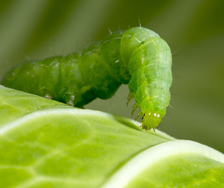
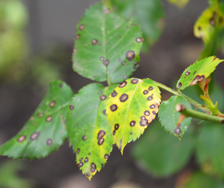
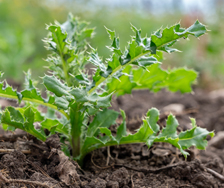
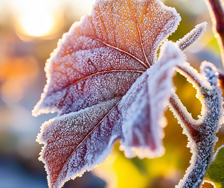
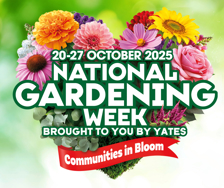









Share
Share this article on social media